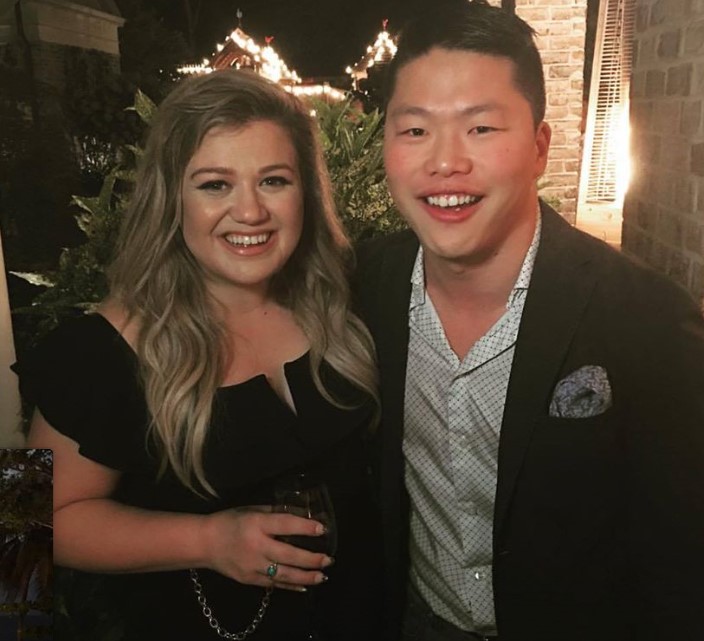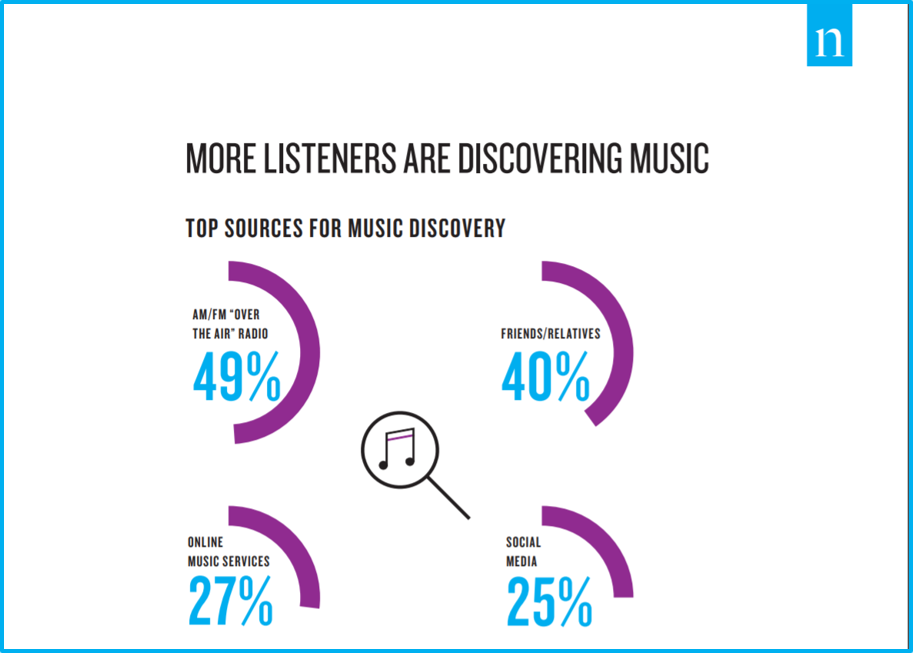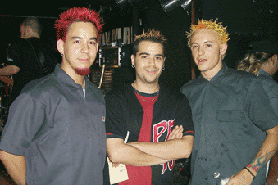
Yesterday, the New York Times devoted the front page of their Arts & Leisure section to this story:
“Kelly Clarkson Is Nobody’s Puppet”
Written by Caryn Ganz, it details the maverick approach Clarkson has employed her entire career, often using her gut and instincts to make key decisions. The story began at a recent party at her home in Hendersonville, Tennessee. The bash was put together to promote her new album. Here’s how Ganz described it:
“Ms. Clarkson and her husband, Brandon Blackstock, also her manager, were introducing the record, titled ‘Meaning Of Life’ to the people who could either make it a blockbuster or bury it.”
Who was that influential group of partygoers?
More than 200 radio programmers.
Yes, at a time when pundits continue to play up how music discovery has moved to digital platforms and how consumers are gravitating away from radio, here was Clarkson taking the time to party with the industry’s true gatekeepers – radio PDs.
Maybe she’s been reading her Nielsen data. Their new Music 360 study confirms radio remains the king of new music discovery – with nearly a 2-to-1 margin over other media sources. Yes, consumers are curating playlists online more than ever, but when it comes to finding out about what’s hot, who’s new, and what matters, it’s still on the radio airwaves.

The connection between radio and records was historically a strong one throughout the second half of the 20th century. Yes, there were speed bumps along the way – namely, payola. But all in all, the two industries worked well together to advance each other’s goals. Radio was always the way you broke an artist – or a record. And labels, management, and bands tacitly understood the power of radio promotion and support.
But something got upended along the way. I’m sure analysts have their theories, but it seems to me that when SoundExchange became an independent non-profit in 2003, things started to go awry. Nearly four years ago at the New Music Seminar, SoundExchange CEO Michael Huppe wondered whether FM radio airplay actually diminishes music sales.
According to Billboard, “Huppe’s argument claimed FM radio hurts music sales, fails to set trends, profits enormously to the tune of $17 billion a year while failing to fairly compensate musicians and labels.” He even cited several examples from a University of Texas study noting there were three times in history when radio decreased music sales, including the debut of NASH-FM in New York City which failed to move the needle on country music sales.”
You have to wonder how those arguments would play with Kelly Clarkson. That’s because the reality is that while streaming sources like Pandora and Spotify provide lots of spins on digital gadgets often helping to expose or even break a new song, radio is the only medium that builds artist brands. Promoting music one song at a time is an arduous task. But as veterans of both radio and records know very well, the key is to create sustainable fan bases that support artists, release after release.

I was reminded of that last summer when Linkin Park’s Chester Bennington took his life. In the days that followed, Facebook, Twitter, and Instagram were filled with photos of Bennington visiting radio stations and meeting-and-greeting radio programmers and DJs backstage. Linkin Park’s rise to superstardom was very much due to how the band worked the radio industry – and how PDs and air talent responded.
Linkin Park took the time to visit radio, built their rep, played station festivals, and connected with millions of radio cumers, while building a long-lasting, dependable brand. That’s precisely what’s missing in so many music formats today.
So, maybe artists and programmers should start having dinner together again, hang out at the station, and give local fans great memories they cannot experience from a streaming pureplay or satellite radio.
Because for the health of both storied industries, putting down the weapons, respecting each other’s missions, and spending time together could be the start of a healing process that is much needed.
As Kelly Clarkson knows so well, it just might make both radio and records “stronger.”
Thanks, Paul.
- Old Man, Take A Look At My Ratings - December 20, 2024
- In The World Of On-Demand Audio, How Do We Define Success? - December 19, 2024
- Scenes From The Classic Rock Highway – 2024 Edition - December 18, 2024




In 2014, Taylor Swift refused to license her music to the streaming services because she rightly felt the money people spent on them took away from her album sales. Of course here music was ubiquitous on radio and she gladly submitted to many interviews around that time. Her album 1989 became the biggest selling release since 2002.
The next year Adele followed suit and denied her music to the streaming services. She sold more albums than 1989.
Now what point was Soundexchange trying to sell?
Sometimes the disputes cloud over and obscure the goals. The two industries need each other. Thanks for the reinforcement.
Sound Exchange is another service to pay for, like ASCAP, BMI and SEASAC (At the time, I avoided paying that one because “Grandma Got Run Over By A Reindeer” was the only tune in their catalogue for consideration). Radio & Records is like Cars & Radio, Baseball & Ballantine, Ying & Yang. Radio has always introduced excellent music and outstanding artists. R & R Cooperation & Friendship is essential. Cut radio costs, gain artist promotion, music companies make money. Logical?
It is to ME. Thanks, Clark.
Pop taking a page from the country music playbook. Well played, Kelly.
She knows what she’s doing, Jack.
Where it went wrong was when focus groups replaced local record sales dictating airplay. Madison Avenue’s love affair with micro-marketing combined with radio’s jones for national advertising killed both records and music radio. Radio needs to get seriously local again playing the music local people care enough about to be reaching for their wallets to buy tickets or recordings.
Bob, research is part of the issue, to be sure. But I believe the bigger issue & OPPORTUNITY is for both side – radio and records – to look for areas of collaboration. Thanks for the comment.
When someone opines that broadcasters are not paying enough to the record companies and artists, I wonder how much money THEY pay the broadcasters to have their music heard?
How much capital was outlaid by broadcasters in the building of all those stations and transmitter sites and the hiring of staff across America and the world? And how much would it cost to PURCHASE that amount of air time those companies have received on those stations?
Say a top artist is heard 8 times a day on, say, 8 stations in New York City. Say their latest song is three-minutes long. What does 192 minutes of air time daily cost in New York City? Now multiply that around the country. I don’t think my calculator goes that high.
The point isn’t that broadcasters don’t need the music industry any more than the music industry doesn’t need broadcasters. The music industry has developed–with no small amount of help from the radio industry–the top talent listeners want to hear. And they’ve also laid out plenty of capital themselves, both in state-of-the-art studios and staffing, as well as in developing artists–without ever really knowing who will be the next big hit, and who will, contrary to all indications of their potential success, fall flat.
The point only being that, yes, any argument that diminishes the importance of both is shortsighted and harmful to both industries.
Thanks for another great article. Here’s to the continued success of both radio AND records.
David, thanks for the comment and your observations. All the finger pointing and acrimony doesn’t change the reality that both industries aren’t what they used to be and could use each other’s support. The shortsighted have been in control for too long. There is a bigger picture and a bigger win. Appreciate the kind words.
Paul, this will never happen again. The only people getting to schmooze with the artists are station format captains and VP’s of Programming. Labels know that most of the PD’s have hardly any control of what gets added. Most of the label folks who really cared have all been pushed out and are independent now. This will help some more of these independent artists because they are really good and truly value relationships with radio. However, the label/radio relationship is long gone and won’t be coming back.
Now, management companies could help bridge the gap… they are the ones who truly hold all the power now.
Eric, you may be right – that ship may have sailed, but there’s no reason why the two industries couldn’t forge a new relationship that could contribute to their mutual benefit. Thanks for the comment.
Just maybe part of that “disconnect” lies in the Record Labels seeing Music streaming and Digital as the industry’s saviour… while Radio…
Exactly.